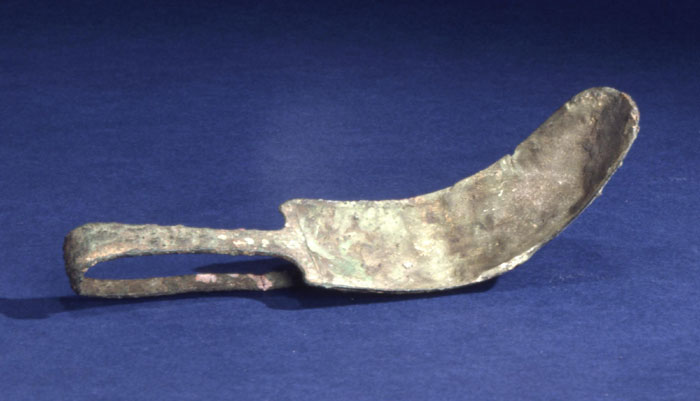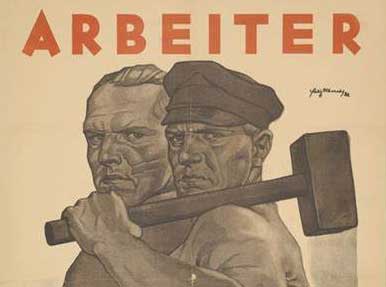Ruins of opulent public bathhouses, known as “thermae,” stand as visual testaments to the ancient Romans’ obsession with cleanliness. Historians reveal that individuals across all social strata, from the affluent to the impoverished, and even slaves living in the capital of the Roman Empire, made it a habit to bathe daily and undergo thorough cleansing regularly.
(more…)-

Frozen Fallout: Nuclear Pollution in the Arctic
During the Fukushima nuclear accident on March 11, 2011, radioactive material was released into terrestrial, marine, and freshwater environments. Some of the airborne contaminants were deposited on land areas of Japan through precipitation, while most of the remainder fell over the North Pacific Ocean. Less than 2% of the total fallout was deposited in areas outside Japan.
(more…)
-

The Seven-Day Week: An Oddball on Our Calendars
The number 7 has mystified human imagination for centuries: seven sacred planets, seven heavens, seven seas, seven deadly sins, seven chakras, seven gods of fortune… So why not seven days in a week?
Almost all units of time are either linked to some physical phenomena or based on the fundamental unit, the second. Specifically, the year, month, and day are tied to the orbital or rotational periods of celestial bodies, while the minute and hour are defined in terms of the second, which itself is defined by atomic behavior. Unlike these units, the week is an anomaly as it lacks any direct correlation to astronomical or atomic rhythms. Rather, it is an artificial construct of the human imagination, resulting from the bizarre fusion of ancient astronomy, astrology, and mathematics.
(more…)
-

What’s in a Name: The Art of Insults and Labels
Name-calling in modern politics is a common tactic aimed at demonizing, devaluing, discrediting, or dismissing opponents. In 1937, the newsletter of the now-defunct Institute for Propaganda Analysis identified “name-calling” as one of seven propaganda devices designed to influence and distort public opinion.
Nowadays, name-calling is part of what political strategists refer to as “political branding.” To attack each other, politicians use catchy labels, ranging from relatively benign terms like “whiskey-drinking evil old man” and “blundering visionary” to more hurtful insults such as “commie,” “flip-flopper,” “pathological liar,” and “buffoon.” Whether mild or sharp, these labels are meant to undermine opponents’ views, integrity, intellect, or other personal traits. Donald Trump’s signature monikers like “Crooked Hillary,” “Crazy Bernie,” and “Sleepy Joe” are examples of personified versions of the latter.
Name-calling isn’t exclusive to politicians. It’s a common practice in other professional circles as well.
(more…)
-

Stockholm Syndromania
“Stockholm syndrome” refers to a controversial psychological concept wherein hostages sympathize with their captors and become hopelessly attached to them. However, most people don’t fully understand its meaning and apply the term indiscriminately to describe practically any situation where the abused develop a bond with their abusers.
Fifty years after its inception, interest in Stockholm syndrome remains high. It is pervasive and ubiquitous. Anywhere you look, you will find the concept of Stockholm syndrome mentioned and often exploited for various purposes in one form or another.
(more…)
-

Not So Steady Big Bang
The term “Big Bang,” widely adopted to describe the origin of the universe, was coined by English astronomer Fred Hoyle during a BBC radio broadcast in 1949. However, Hoyle wasn’t the father of the Big Bang theory; quite the opposite—he strongly opposed it.
(more…)
-

Pascal’s Divine Vacuum: A Debate with Descartes
Blaise Pascal, a renowned 17th century mathematician, physicist, and theologian, had a scientific and philosophical disagreement with his fellow Frenchman, scientist, and philosopher René Descartes.
On the philosophical front, Pascal and Descartes, both devout Catholics, disagreed on the role of God in nature and human lives. Descartes argued that God is separate from humans, akin to the separation of the human body and mind, and sought to prove God’s existence through logical arguments rather than religious experience. Pascal accused Descartes of being a deist and asserted that conclusive evidence of God’s existence is unnecessary, and that faith is based on the heart and emotional experience. Despite this, Pascal introduced his famous Pascal’s wager, suggesting that it is more rational to believe in God than not to.
In physics, the disagreement between the two centered around the existence of vacuum in nature. Descartes argued that nature does not contain vacuum, while Pascal held the opposing view and conducted scientific experiments to prove its existence. He utilized a barometer to collect data, which led Pascal to correctly conclude that air pressure decreases as one moves away from the Earth’s surface until pressure vanishes completely, creating a vacuum. Descartes rejected Pascal’s argument as absurd and insulted his opponent’s intelligence in a private letter, joking that Pascal had “too much vacuum in his brain.”■
-

Buzzing with Creativity: Ending Hostage Crises in Style
The renowned Norrmalmstorg robbery, an armed robbery and hostage crisis in Stockholm in 1973, brought the controversial psychological theory known as “Stockholm syndrome” to global attention. The unfolding event, where four hostages were held at gunpoint inside a bank’s vault for six days, was broadcast live on national television, getting an astonishing 73% of the Swedish viewers glued to their screens.
During that time, the Stockholm police headquarters were inundated with phone calls from concerned citizens from all over the country with suggestions for ending the bank drama. Some of the proposed solutions were quite extraordinary in their creativity. For instance:
- Organize a concert of religious tunes by a Salvation Army band to break the perpetrator’s spirit and force them out of the building.
- Release a swarm of angry bees through the vents of the vault, where both the hostages and their captors were barricaded, to sting the bank robbers into submission.
- Swab the floor outside the vault with soap, then open the vault’s door so the criminals would slide into the hands of the police when they emerge from the vault.
The police, however, favored an old-fashioned tear gas tactic, which ended the standoff in about one hour with no casualties.■
-

Taiwan’s Belorussian Jewel
Chiang Ching-kuo, who served as the president of the Republic of China from 1978 to 1988, spent 12 years in Soviet Russia during his youth. It was there that he met a young Belorussian woman named Faina Vakhreva, whom he married and later brought back to China with him when he returned home in 1937.
(more…)



